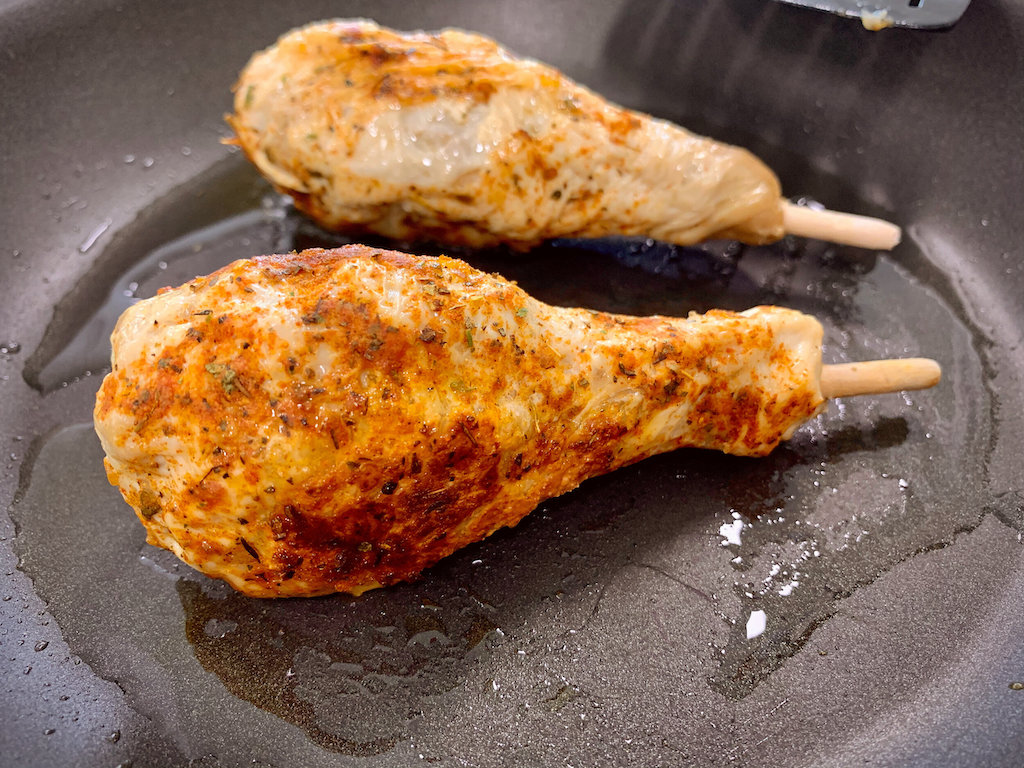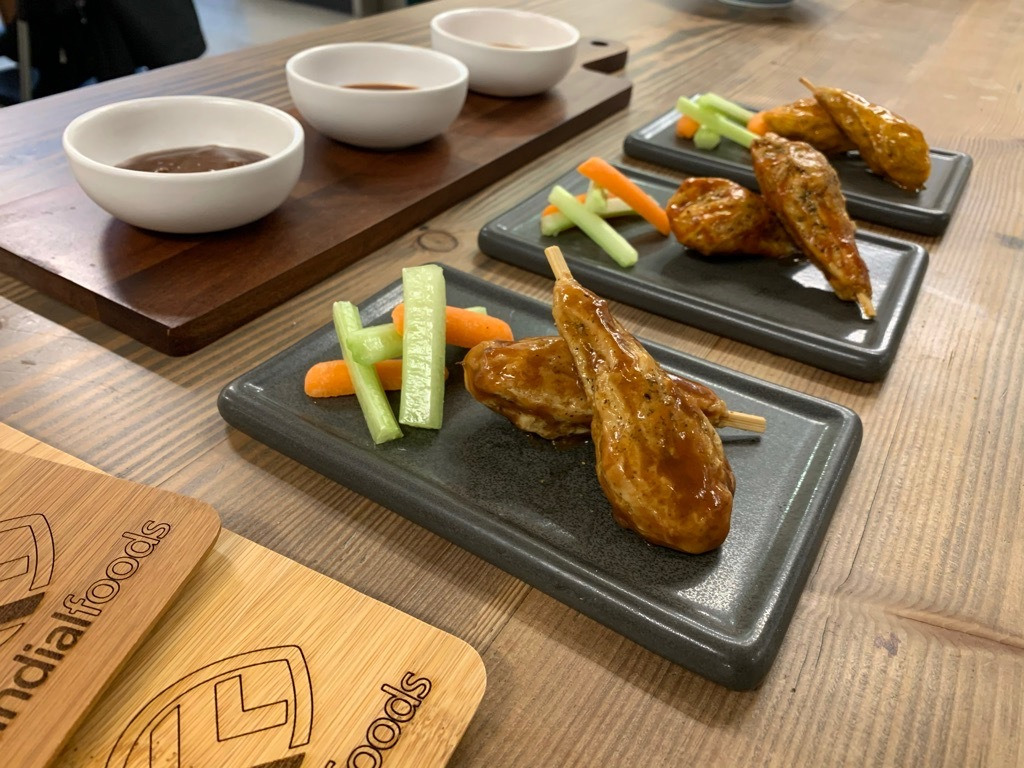3 Mins Read
California-based Sundial Foods has raised $4 million in seed funding for its whole-cut vegan chicken wings slated to launch in the US in 2022. The round included participation from Nestlé, Food Labs, Clear Current Capital, and SOSV / IndieBio.
Sundial Foods is using a proprietary protein structuring tech to make plant-based meats without heavy processing or synthetic ingredients. Its first product is whole-cut chicken wings made entirely from plants meant to mimic the taste and texture of traditional wings.
The seed funding will go towards expanding the Sundial Foods team and commencing production at the Rutgers Food Innovation Center in Bridgeton, New Jersey.
Sundial Foods is part of the 11th cohort of food tech investor IndieBio accelerator program in San Francisco.

Skin, meat, muscle and bone
Sundial Foods uses a proprietary processing technology to recreate whole chicken wings from the meat and skin down to the muscle and bone.
Company co-founders Jessica Schwabach and Siwen Deng explained the technical process in detail to IndieBio earlier this year,
“Like extrusion, we combine plant ingredients under thermal processing to generate a fibrous bite texture, but there are two key differences. First, we don’t have that shear, so we’re able to create a cohesive three dimensional product in one shot – no assembly required later. Second, we don’t just use the functionality of protein isolates to create these fibers — we use intrinsically present starches, fiber, and so on to our advantage when we’re trying to create this texture.”
On a more basic level, Sundial Foods’ products require less processing than many other plant-based meat offerings. Because of that, it also calls for fewer ingredients. The chicken wings include just eight ingredients: water, chickpeas, chickpea protein concentrate, gluten, sunflower oil, soybeans, nutritional yeast, and salt. One serving contains 9.4 grams of fat and 247 milligrams of sodium.
The company says it started with chicken wings because of their popularity with Americans (who were projected to eat almost 1.5 billion wings during Super Bowl 2021).

‘Cravable and versatile’
Fans of wings looking to add a more environmentally friendly option to their plates won’t be able to get their hands on Sundial Foods’ products just yet. The company is looking to launch its wings at restaurants in the Bay Area in the spring of 2022 before expanding to other US locations.
Po Bronson, General Partner at SOSV and Managing Director of IndieBio, said in a statement that Sundial Foods will make it to market faster than any IndieBio company in history. “Making a super tasty alt-chicken wing is only half of it. During the IndieBio program, the Sundial team really focused on automating their production and manufacturing method, where they had several breakthroughs,” he said.
Plant-based chicken options for vegans and “flexitarians” are proliferating worldwide. Making that taste, texture, and mouthfeel convincing to a more mainstream demographic will be a key step in Sundial’s success moving forward.
“Our goal is to make meats that replace the butcher, so our product can be enjoyed as a center-of-plate experience,” Schwabach said in a statement. “We want to give consumers—whether vegetarian, vegan, flexitarian, or meat-eating—a plant-based meat-eating experience that’s interesting, craveable, and versatile.”
Lead image courtesy of Sundial Foods.




